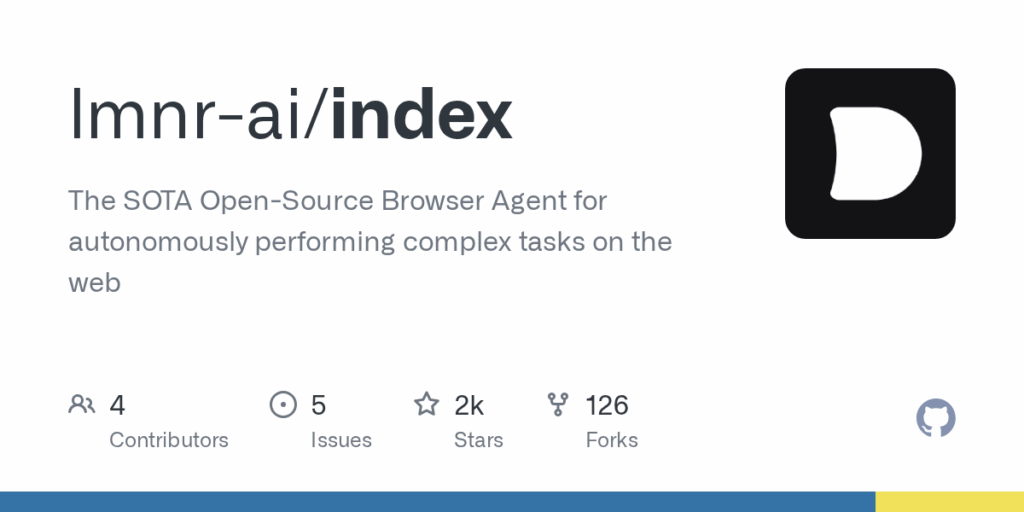index
Basic Information
Index is an open-source browser agent designed to autonomously execute complex web tasks and to turn any website into an accessible API for integration into projects. The repository provides a Python package and a CLI that let developers run agents locally or via a serverless API. It is built to work with reasoning LLMs that include vision capabilities and supports multiple model providers such as Gemini, Claude, and OpenAI. Index emphasizes reliable structured extraction via Pydantic schemas, persistent browser state across sessions, and optional integration with a tracing platform called Laminar for browser observability. The README includes quickstart examples, installation instructions for dependencies and Playwright, environment setup for model API keys, and sample code demonstrating navigation, extraction and summarization, making it suitable for programmatic web automation, data extraction, and embedding browser-driven agents into applications.








